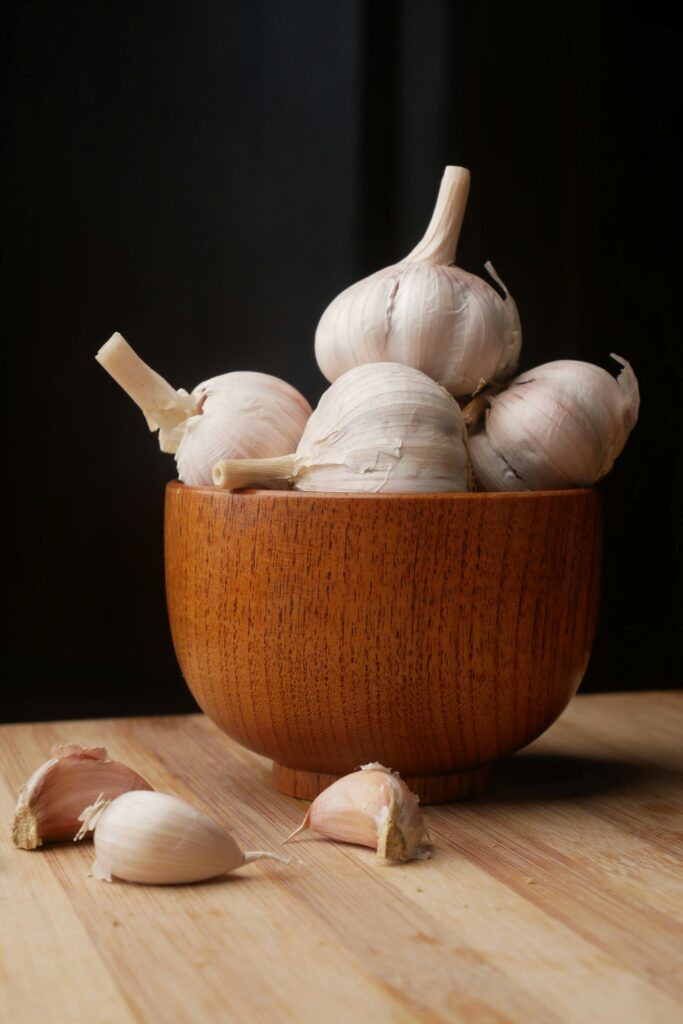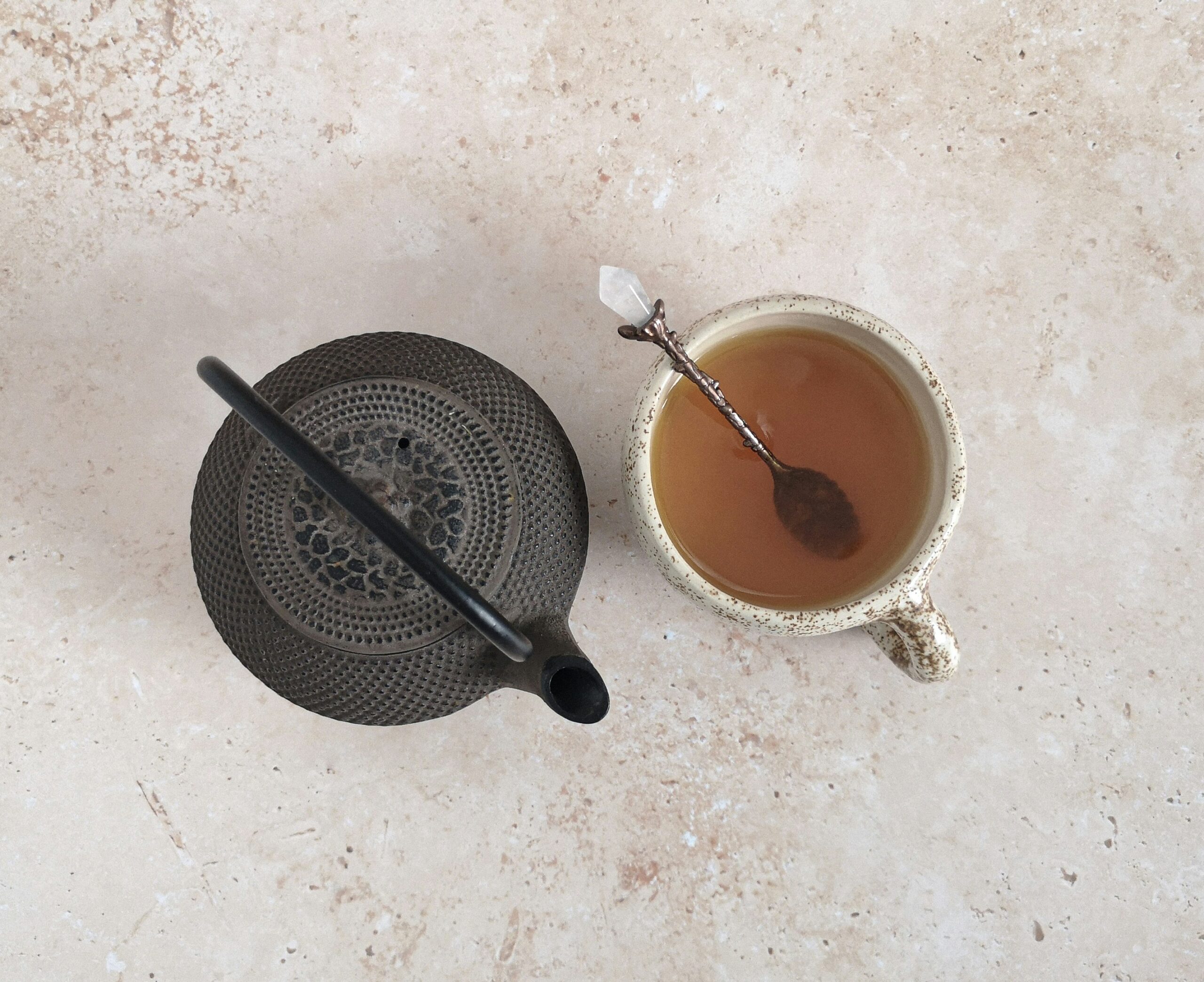
Herbal antibiotics for tooth infections are worth exploring where you maybe don’t have access to a dentist or want to look at home remedies first. Tooth infections can be both painful and dangerous if left untreated. Fortunately, along with conventional antibiotic treatments, there’s a growing interest in herbal alternatives that may provide relief until you can see the dentist stat! These natural antibiotics come from plants known for their antimicrobial properties and have been used for centuries to fight infections. They could offer a complementary approach to managing dental infections, especially in an era where antibiotic resistance is a rising concern.
Herbal remedies might not only help in combating infections but also promote oral health without some of the side-effects associated with chemical antibiotics. Many natural extracts such as tea tree oil or turmeric have shown promising results in fighting the bacteria that cause tooth infection. If you’re exploring natural avenues for maintaining oral hygiene, understanding how these herbal solutions work and when to apply them is crucial.
Before trying any new treatment, including natural remedies, it’s vital to consult with your healthcare provider to ensure that it’s safe and effective for your specific condition. Using herbal treatments as part of a broader oral hygiene routine may better safeguard you against tooth infections and enhance your overall dental health.
Key Takeaways
- Herbal antibiotics offer a natural alternative for managing tooth infections.
- Understanding the effectiveness and application of herbal remedies is essential.
- Consultation with a healthcare provider is important before using herbal treatments.
What are we talking about today?
- Understanding Tooth Infections
- Herbal Antibiotics and their Effects
- Application of Herbal Remedies
- Considerations When Using Herbal Treatments
- Preventive Measures and Oral Hygiene
- Frequently Asked Questions
Understanding Tooth Infections
Tooth infections are primarily the result of bacteria infiltration that can lead to discomfort and, if not addressed, serious oral health issues. Managing and recognising the signs early is crucial to preventing further complications.
Bacterial Infections and Oral Health
When harmful bacteria accumulate in your mouth, they can inflict damage on your teeth and gums. One common outcome is dental caries, where bacteria erode the dental enamel and dentine. If the decay progresses unchecked, it can extend to the tooth’s inner pulp, resulting in a toothache or even an abscess—a pocket of pus caused by the bacterial infection.
Poor oral hygiene often leads to excess bacteria buildup, with plaque acting as a breeding ground for these microorganisms. This can affect the surrounding soft tissues of your mouth, causing gum inflammation and in the worst-case scenario, a condition called periodontal disease, which impacts the structures supporting your teeth.
Signs and Symptoms of Tooth Infections
Recognising the symptoms of tooth infections is key to seeking timely treatment. Here’s what you should look out for:
- Pain: This could be a persistent, throbbing toothache that may radiate to the jawbone, neck, or ear.
- Swelling: You might notice this in your gums, around your tooth, or in your face.
- Sensitivity: An increased sensitivity to hot or cold temperatures can be a sign.
- Fever: An infection can sometimes lead to a fever as your body attempts to fight off the bacteria.
If you experience any of these symptoms, especially if they’re coupled with a bad taste from pus draining into your mouth, don’t hesitate to seek dental care. These infections can spread and create more significant health problems if they’re not treated effectively and promptly.
Herbal Antibiotics and their Effects
Exploring the world of herbal remedies, you’ll find that certain herbs like clove of garlic, cloves, and oregano oil are not just culinary delights but also pack a powerful punch against bacterial invaders in your mouth.


Garlic as an Antibacterial Agent
Garlic, a common kitchen ingredient, is renowned not only for its flavour but also its antibacterial properties. This is largely due to allicin, the compound that emerges when garlic is crushed or chopped into a garlic paste. Allicin has shown the ability to fight a range of bacteria, and incorporating garlic into your daily routine may help combat tooth infections by harnessing its antimicrobial prowess.
Cloves and Clove Oil
Cloves, like garlic, carry a vast history of medicinal use. They are celebrated for their strong antibacterial and anti-inflammatory properties, making them a trusted choice for dental health. Clove oil, extracted from the clove plant, is particularly potent and has been used as a treatment for toothache and mouth infections due to its antioxidant benefits and eugenol content—a compound with significant antimicrobial activity.
Oregano Oil Properties
Oregano oil is yet another herbal heavyweight with a reputation for battling microbes. With its robust antibacterial and anti-inflammatory properties, it serves as a natural remedy that might soothe your inflamed gums and fight bacteria responsible for tooth infections. Oregano oil, rich in antioxidants, can be a complementary approach to your oral healthcare routine, offering you a sense of reassurance with its strong antimicrobial capabilities.
RELATED: Herbs For Tooth Decay: Natural Remedies For Dental Health
Application of Herbal Remedies
Exploring herbal remedies for tooth infections can offer gentle and natural alternatives. These solutions may utilise essential oils, herbal rinses, and other plant-based treatments to address oral discomfort.
How to Use Herbal Solutions
Using herbal remedies often involves applying products directly to the affected area or incorporating them into your oral hygiene routine. For example, tea tree oil is a potent antimicrobial agent but must be diluted with a carrier oil like coconut oil before being swabbed onto your gums with a cotton swab. Always ensure you’re using therapeutic-grade essential oils that are safe for use in the mouth.
Another method includes oil pulling, which is an Ayurvedic practice involving swishing coconut oil (or olive oil) in your mouth for several minutes before spitting it out. This can help in reducing harmful bacteria and promoting oral health.
- #1 Dilution: Essential oils should be diluted with a carrier oil at a ratio of 1-2 drops of essential oil to 1 teaspoon of carrier oil.
- #2 Application: Apply the diluted essential oil using a cotton ball or swab to the affected area.
- #3 Frequency: Repeat the application 2-3 times daily, monitoring for any adverse reactions.
DIY Treatments and Rinses
Simple homemade treatments can be prepared for managing tooth infections. For instance, a warm saltwater rinse, using a teaspoon of salt in a cup of warm water, can soothe inflamed gums and wash away bacteria when gargled. Similarly, rinsing with a mixture of hydrogen peroxide and water (in equal parts) can act as an antiseptic oral rinse but should not be swallowed.
- Warm Salt Water Rinse: Gargle for 30 seconds and spit out. Repeat up to four times daily.
- Hydrogen Peroxide Rinse: Combine equal parts of 3% hydrogen peroxide and water. Swish in the mouth for about 30 seconds, then spit it out.
DIY natural remedies can also include herbal teas, such as fenugreek tea, which is known for its anti-inflammatory properties, and adding honey for its natural healing benefits.
- Fenugreek Tea: Steep tea as per instructions; use as a mouth rinse after it cools down.
- Honey: Add a spoonful to tea or warm water; its antibacterial properties may help in recovery.
Considerations When Using Herbal Treatments
When exploring herbal treatments for the infected tooth, it’s important to be aware of their potential side effects and to know when it’s time to seek advice from a professional dental care specialist.

Potential Side Effects
Herbal remedies can be beneficial in managing dental pain and infected area, but like all treatments, they come with potential side effects that you should be mindful of. Some herbs may cause sensitivity or allergic reactions, such as itching or rashes. If you notice any unusual symptoms like bleeding or increased sensitivity in your gums, it’s critical to halt the use of the herb and consult your dentist. Here’s a quick list of possible side effects to watch out for:
- Allergic Reactions: Swelling, rashes, or itchiness
- Sensitivity: Tingling or discomfort in the mouth
- Gastrointestinal Issues: Nausea, vomiting, or diarrhoea
- Interactions with Medications: Reduced effectiveness of other drugs
When to Consult a Professional
You should always consult with a dentist or doctor before beginning any herbal treatment, especially if you have pre-existing health conditions or are taking other medications. If the pain persists, or if there’s no improvement in the infection, professional dental treatment is necessary. Doctors and dentists can provide guidance on the proper use of herbal treatments and can help you understand the risks of antibiotic resistance with overuse or misuse of conventional antibiotics. Remember, herbal remedies are not a substitute for professional medical advice or treatment. If in doubt or if symptoms worsen, make an appointment with your healthcare provider.
Remember, your safety is paramount, and while herbal remedies can offer pain relief and potentially help with tooth infections, they are part of a larger spectrum of dental care that includes professional diagnosis and treatment.
Preventive Measures and Oral Hygiene
Taking care of your mouth is more than just avoiding a toothache; it’s about keeping your entire oral environment healthy. Engaging in preventive measures can help protect you from gum disease, cavities, and bad breath.
Maintaining Dental Health
To maintain your dental health, it’s essential to adopt a regular oral hygiene routine. Brushing your teeth at least twice a day with fluoride toothpaste plays a crucial role in removing plaque, which can lead to tooth decay and gum disease if not managed. Flossing daily is equally important, as it helps remove food particles and plaque from between your teeth and under the gumline where a toothbrush can’t always reach.
Adding tongue scraping to your routine can combat bad breath by removing bacteria from the surface of your tongue. Your immune system benefits from good oral hygiene too, as it reduces the risk of bacteria entering your body and causing disease.
Natural Products for Oral Care
In addition to conventional methods, natural products can be an adjunct to your oral care routine. Oil pulling, a practice where you swish oil in your mouth for a period, is thought to reduce bacteria, combat bad breath, and improve overall oral hygiene. Oils commonly used for this purpose include coconut, sesame, or sunflower oil.
There are also herbal extracts that have shown potential in promoting oral health. For instance, compounds found in traditional medicinal plant extracts can be effective against oral bacteria, which may aid in the prevention of plaque build-up and tooth decay, as seen in the research on traditional medicinal plant extracts. Many people also turn to products like Triphala, an Ayurvedic mixture that has been reviewed for its role in the prevention of dental caries and as an antibacterial in the oral cavity.
Frequently Asked Questions
If you’re grappling with a tooth infection or gum issue, it’s natural to seek out effective remedies. Below, you’ll find answers to some commonly asked questions about managing oral infections with herbal alternatives.
What can I use to alleviate a tooth abscess without consulting a dentist?
While seeing a dentist is crucial for a tooth abscess, you might find temporary relief using clove oil, which has natural antibacterial properties. Apply a small amount to a cotton ball and dab gently on the affected area until you can see a dentist.
Which natural remedy is most effective for treating a gum infection?
Saltwater rinses can be effective for treating gum infections. Dissolving salt in warm water and rinsing your mouth can help clear out bacteria and reduce inflammation.
Is it possible to heal a tooth infection without resorting to a root canal treatment?
Healing a tooth infection without professional dental intervention is unlikely. Natural remedies may provide temporary relief, but infections typically require a dentist’s care to prevent complications.
How can one quickly soothe pain from a tooth abscess?
To quickly soothe pain from an abscess, try a peppermint tea rinse. The menthol in peppermint is known for its analgesic properties, which may help numb the area.
What are proven home methods for reducing swelling from a tooth abscess?
Cold compresses applied externally can help reduce swelling from a tooth abscess. This method could help alleviate pain and inflammation – apply it in intervals of 20 minutes.
How can one naturally manage a mouth infection?
Maintaining good oral hygiene is the first step in managing a mouth infection. In addition, rinses with hydrogen peroxide, diluted in water, may help control the population of harmful bacteria.



Comments +